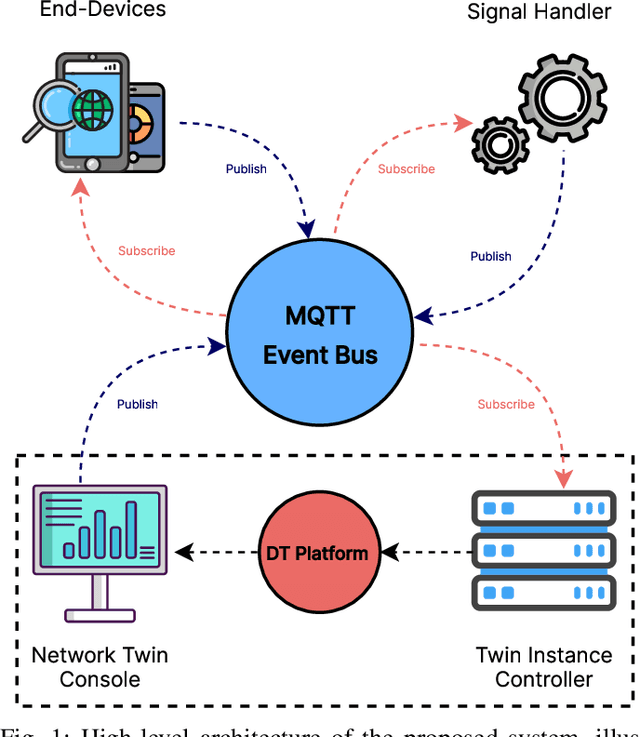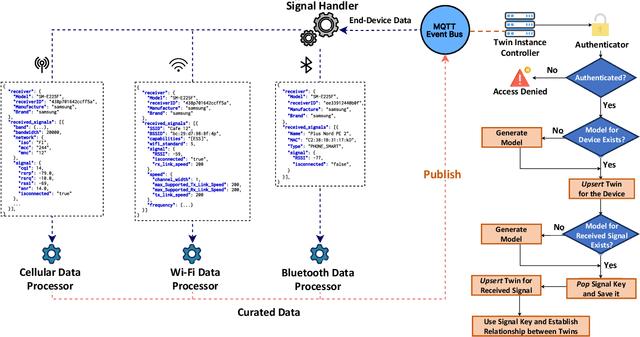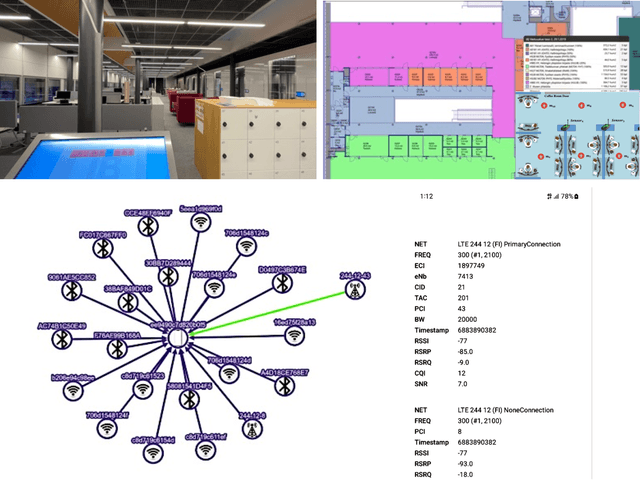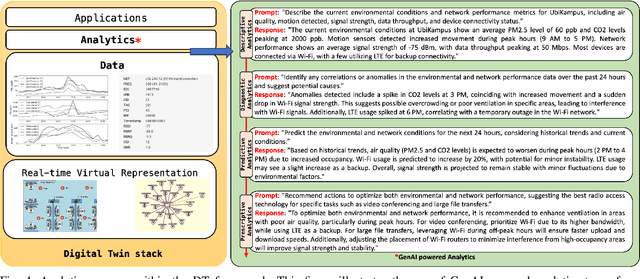Paulius Daubaris
Future-Proofing Mobile Networks: A Digital Twin Approach to Multi-Signal Management
Jul 22, 2024



Abstract:Digital Twins (DTs) are set to become a key enabling technology in future wireless networks, with their use in network management increasing significantly. We developed a DT framework that leverages the heterogeneity of network access technologies as a resource for enhanced network performance and management, enabling smart data handling in the physical network. Tested in a \textit{Campus Area Network} environment, our framework integrates diverse data sources to provide real-time, holistic insights into network performance and environmental sensing. We also envision that traditional analytics will evolve to rely on emerging AI models, such as Generative AI (GenAI), while leveraging current analytics capabilities. This capacity can simplify analytics processes through advanced ML models, enabling descriptive, diagnostic, predictive, and prescriptive analytics in a unified fashion. Finally, we present specific research opportunities concerning interoperability aspects and envision aligning advancements in DT technology with evolved AI integration.
Business and ethical concerns in domestic Conversational Generative AI-empowered multi-robot systems
Jan 12, 2024



Abstract:Business and technology are intricately connected through logic and design. They are equally sensitive to societal changes and may be devastated by scandal. Cooperative multi-robot systems (MRSs) are on the rise, allowing robots of different types and brands to work together in diverse contexts. Generative artificial intelligence has been a dominant topic in recent artificial intelligence (AI) discussions due to its capacity to mimic humans through the use of natural language and the production of media, including deep fakes. In this article, we focus specifically on the conversational aspects of generative AI, and hence use the term Conversational Generative artificial intelligence (CGI). Like MRSs, CGIs have enormous potential for revolutionizing processes across sectors and transforming the way humans conduct business. From a business perspective, cooperative MRSs alone, with potential conflicts of interest, privacy practices, and safety concerns, require ethical examination. MRSs empowered by CGIs demand multi-dimensional and sophisticated methods to uncover imminent ethical pitfalls. This study focuses on ethics in CGI-empowered MRSs while reporting the stages of developing the MORUL model.
 Add to Chrome
Add to Chrome Add to Firefox
Add to Firefox Add to Edge
Add to Edge